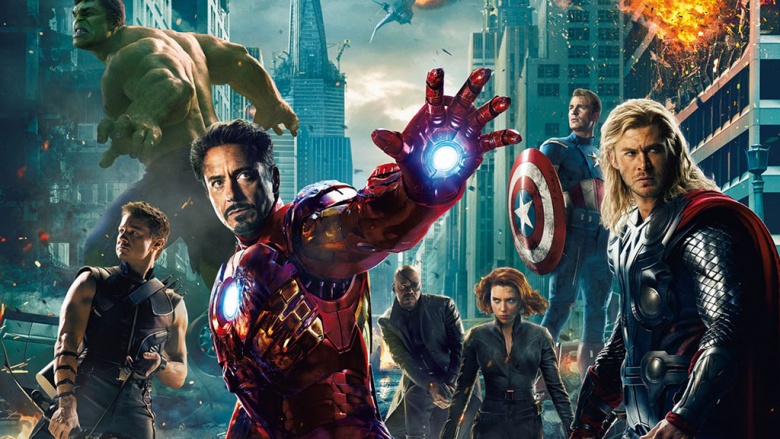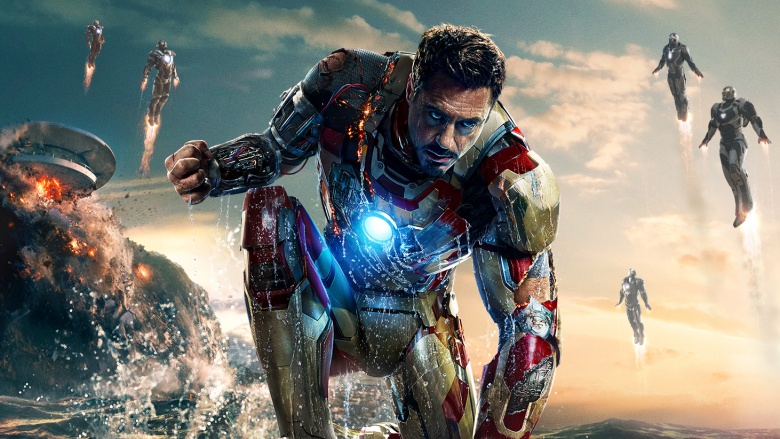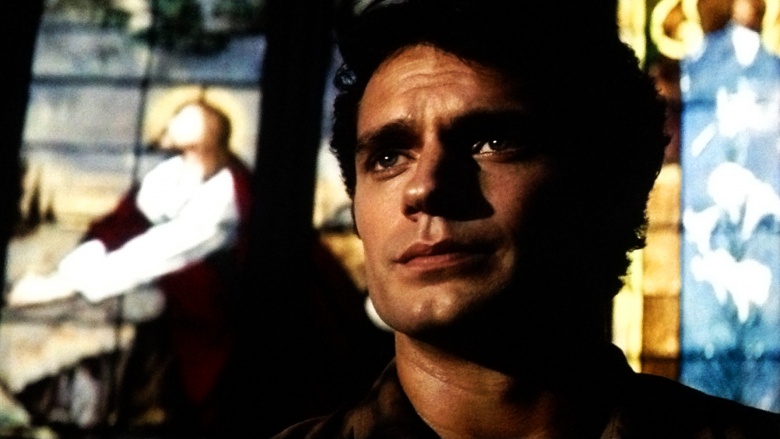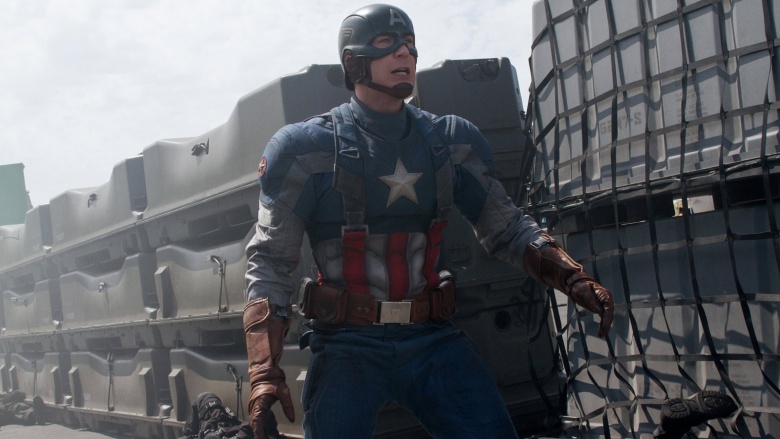Secret Meanings Behind Superhero Movies
The great thing about art is that it can be about anything you want it to be. Maybe the creator intended his or her masterpiece to be a harmless, light-hearted bit of fluff, but if you interpreted it as a heartbreaking existentialist treatise on the pointlessness of love and the inevitability of death, that's your prerogative. Likewise, there are many who take our favorite superhero movies to be about anything besides superheroes. As the following theories point out, while you were busy feeding yourself buttered popcorn, the movies were busy feeding you metaphors.
The Avengers is about divided Americans
Obviously, a movie starring a guy named Captain America would offer a dose of Americana, at the very least. But according to Marc Ruffalo, the actor behind the Hulk, the Avengers isn't pro-America as much as it is a metaphor for Americans, period. See, America is a melting pot, but much of it doesn't melt together very well. You go to two parts of the country and they're totally different from one another. Go elsewhere, and it's totally different from either of the first two areas. Tufts Magazine once argued that America is basically 11 countries in one, each one totally unique to the other ten, and they're not wrong. Northeast America and Deep South America might as well be two different planets, never mind nations.
So what does this have to do with the Avengers? Everything, according to Ruffalo. The Avengers team is comprised of many different heroes, who basically have nothing in common. You've got elitist arrogance, humble do-goodery, and pure anger, among other ideals, all coming together theoretically to make the world better. Problem is, these differences in character, opinions, and politics often lends itself to bickering, stubborn refusal to compromise, and the occasional all-out Civil War to help blow off steam. And yet, when an outside force becomes enough of a threat, the super-squabblers tend to put their differences aside and fight off the big foreign menace, like America does whenever someone tries to bomb her. Warts and all, the Avengers are the real America's Team.
Iron Man is about Ayn Rand-Style capitalism
This theory has two parts. The first comes straight from Stan Lee himself, who has admitted that his goal when creating Iron Man was to invent a hero that was everything '60s hippie kids hated—rich, capitalistic, arrogant, womanizing, a war profiteer—and make them love him anyway. Clearly, Lee's plan worked, and continues to work to this day, proving that you can make your superhero as big a jerk as you like, as long as they ultimately save the day.
But a capitalist superhero is one thing—what about an Ayn Rand-style capitalist superhero? According to the website Liberty Without Apologies, among others, Iron Man is exactly that. Rand's Atlas Shrugged (for those of you who saw its 1,200-page length and ran away screaming) is basically about rich, successful geniuses who create amazing products that the government wants for itself. But Rand's protagonists won't turn anything over, because it's their stuff, and they're the ones who deserve to profit off it, not the evil government. This is almost exactly what poor Tony Stark goes through, as the government wants to control the Iron Man suit he built himself. But see, it's his stuff, and he deserves to profit off it, not the evil government. Even the part where he reveals his secret identity at the end of the movie is pretty Rand-y. After all, why wouldn't such a capitalist let everyone know he was Iron Man? That's more money and more opportunities for him, after all. Think of all the lucrative endorsements Bruce Wayne misses out on by pretending not to be Batman.
Man Of Steel is about Jesus
Being an all-powerful do-gooder from Not Here, Superman is pretty God-like no matter what the incarnation. But Man Of Steel's take on the Big Blue Boy Scout isn't just a generic God in blue underwear—he's actually a near-literal take on Jesus Himself, according to Entertainment Weekly, right down to the whole miracle birth thing.
In Man Of Steel's version of the Bible, Superman's father, Jor-El, played the Old Testament God—a harsh, angry overlord who prophesied death and destruction for the citizens of planet Krypton if they didn't stop destroying the planet's core by being so sinful, selfish, and self-destructive. Since there is no more Krypton, it's safe to say Jor-El's prophesizing fell on deaf ears, much like the people of Earth failed to heed God's word despite multiple warnings and one outright flood. So, as a last-ditch effort to save his people, Jor-El pulled another God-like move, birthing a son (the first time a Kryptonian child had been born naturally in hundreds of years, making him Mary as well as God), implanting the entire Kryptonian genetic codex into his DNA, and sending him off to live on Earth, where Krypton can effectively be reborn through him.
From there, he grows up with humble, non-powered parents, as Jesus did, and even gave himself up to General Zod at age 33 in the hopes of saving the human race from his wrath. And how old was Jesus when he sacrificed himself to save the human race? That's right, class, 33 years old. The only real difference is that Jesus embraced His powers almost immediately, where it took Superman a couple decades to receive the vision from His Father that He wasn't just some weird farm boy after all. Hey, not every interpretation has to be exact.
Captain America: Winter Soldier is about the NSA
Captain America: Winter Soldier has a lot to say beyond "LOL the villain's name is Bucky." According to a theory laid out by US News, much of Winter Soldier is a thinly-veiled attack on the National Security Agency and its overreliance on creepy Orwellian surveillance to do its job.
As Captain America and Nick Fury discover during their adventures, SHIELD runs a super-shadowy program called Project Insight, whose duty is to analyze data on millions of Americans (data that SHIELD unknowingly collected) and drone them to death if they're deemed threatening enough to The American Way. And, much like the actual NSA programs that Insight is clearly based on, its overseers answer to basically nobody. Plus, its boss is the Secretary of Defense, making them even more powerful and more likely to succeed in covertly controlling America. This, as you might expect, disturbs Captain America greatly. As a former World War II soldier, he knows full well what terrible things can happen when government spying in the name of order runs unchecked and grows out of control.
To complete the NSA-is-a-fascism-starter-kit analogy, the Secretary winds up being an agent for Hydra, the evil Nazi-esque organization Captain America has been fighting in the comics for decades. In addition, the algorithm that Insight used to determine America's riskiest citizens was designed by Arnim Zola, a literal Nazi whose consciousness lives on inside a supercomputer. While comparing something you don't like to the Nazis is usually pretty extreme, sometimes allegories have to get extreme to make their points crystal-clear to those who would otherwise just watch for the pretty people in tights.




